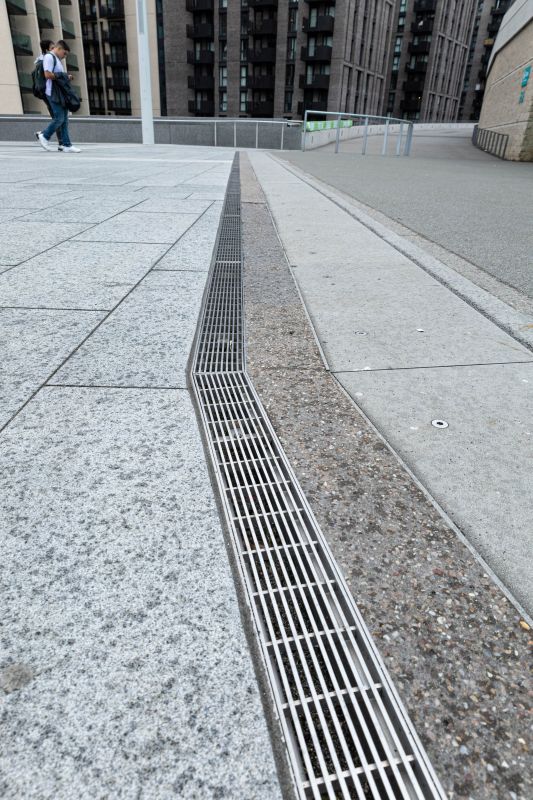
The Prime Minister has announced the biggest ever single injection of cash for the country alongside plans to make roads safer for those on two wheels.
A total of £77 million will be divided between Manchester, Leeds, Birmingham, Newcastle, Bristol, Cambridge, Oxford and Norwich, while the New Forest, Peak District, South Downs and Dartmoor will each share a slice of £17 million funding for national parks. With local contributions, the total new funding for cycling is £148 million between now and 2015.
The announcement includes a commitment from the government to cut red tape that can stifle cycle-friendly road design and to encourage changes to the way roads are built or altered. Councils will be expected to up their game to deliver infrastructure that takes cycling into account from the design stage.
Prime Minister David Cameron said: "Following our success in the Olympics, the Paralympics and the Tour de France, British cycling is riding high - now we want to see cycling soar. Our athletes have shown they are among the best in the world and we want to build on that, taking our cycling success beyond the arena and onto the roads, starting a cycling revolution which will remove the barriers for a new generation of cyclists.
"This government wants to make it easier and safer for people who already cycle as well as encouraging far more people to take it up and business, local government, developers, road users and the transport sector all have a role to play in helping to achieve this."
New trunk road schemes that have a significant impact on cyclists, such as junction improvements or road-widening, will be ‘cycle-proofed’ so they can be navigated confidently by the average cyclist.
Significant junction upgrades and other improvements will help cyclists at 14 locations on the trunk road network where major roads can prove an obstacle for journeys by bike. £5 million will be invested in upgrades this year and a further £15 million will be invested in 2015 to 2016, with plans in place for many more similar schemes.
This commitment to improved cycling facilities is intended to put Britain on a level-footing with countries known for higher levels of cycling like Germany, Denmark and the Netherlands.
Transport Secretary Patrick McLoughlin said: "We have seen a significant growth in the number of cyclists in London over the last few years. But cycling shouldn’t be confined to the capital. This announcement shows we are absolutely committed to boosting cycling in cities and the countryside across the whole of England. I want to help open up cycling to more people and these measures to make cycling safer on our roads are an important part of that."
The Prime Minister announced allocations from the government’s fund to make cycling easier and safer for people in the following urban areas which include the three largest cities outside of London:
- Greater Manchester £20 million
- West Yorkshire £18.1 million
- Birmingham £17 million
- West of England £7.8 million
- Newcastle £5.7 million
- Cambridge £4.1 million
- Norwich £3.7 million
- Oxford £0.8 million
This funding means that investment in cycling in the 8 cities is now in excess of £10 per head per year, as recommended by the All Party Parliamentary Cycling Group’s recent report. This will help these cities deliver a surge in cycling similar to that seen in the capital.
National parks and increasing cycling participation
In addition the Prime Minister announced:
- funding has been agreed at 4 national parks - the Peak District (£5.0 million) Dartmoor (£4.4 million), the South Downs (£3.8 million) and the New Forest (£3.6 million)
- a feasibility study to look into creating a new national cycleway broadly following the route of the HS2 rail line from London to Birmingham, Leeds and Manchester, linking communities and rail stations to work, schools and shops as well as countryside and tourist attractions along the way
- the creation of a new national School Awards Scheme to recognise schools that have demonstrated excellence in supporting cycling and walking; the UK cycle industry, led by the Bicycle Association, has volunteered to work with government to sponsor this award
- the government is extending its commitment to support Bikeability cycle training into 2015 to 2016.
The government has already made it easier for local authorities in England to help cyclists. Measures include removing bureaucracy to introduce 20 miles per hour (mph) speed restrictions, which make streets safer for all road users.
All of the cities receiving funding today have either already implemented, or are looking to expand, the network of 20 mph zones through the cycle ambition funding, with Norfolk and Cambridge looking to introduce extensive area-wide 20 mph schemes. Similar work has been done to make it easier to introduce 40 mph limits in rural areas.
Improving junctions, signals and cycle lanes
The government has also made it easier to introduce ‘Trixi’ mirrors at junctions so that HGV drivers can see cyclists more easily and contraflow measures so that cyclists can use one-way streets to avoid the busiest roads and junctions.
Additionally, the government is currently working with highway authorities to trial a raft of measures to improve roads for cyclists.
These include mini-signals at cyclists’ eye height to give more targeted information to cyclists and the possibility of a head start at junctions along with filter signals for cyclists as an alternative way of providing a head start at traffic lights. There are also trials of different roundabout designs to reduce the speed of vehicles to provide a safer route for cyclists and options for larger advanced stop lines, to accommodate the growth in cycling and make it safer for cyclists at junctions.
Further work is underway to make it even easier for councils to install mandatory cycle lanes and contraflow cycle lanes, cutting costs and complexity for councils. The government is also looking to remove the requirement for a lead-in lane for cyclists at advanced stop lines, making it easier for highway authorities to install advanced stop lines at junctions.
The Department for Transport is also arranging a conference in the autumn aiming to encourage local authorities to deliver better cycle infrastructure.




















